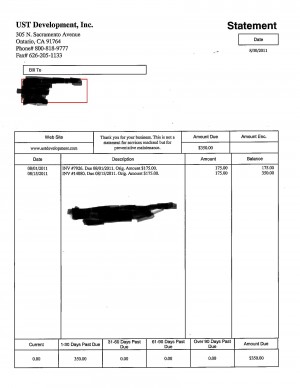It’s rare to see a scam play out in real time and to watch a potential victim turn the tables on the offender. After receiving an invoice from an unknown company for services he did not pay for, Ken from group blog Popehat (who prefers to remain anonymous) did a little digging. He found that the scammers were repeat offenders and that their paper trail, when properly researched, was a mile long.
I won’t go into the particulars in this (it’s a five part series starting here), but Ken’s methods, including a PACER search for public records on the scammers, is a fruitful example of how to use public information to expose the ruse. Ken, who is a “current litigator and criminal defense lawyer at a small law firm in Los Angeles,” wrote me that he is using this case as an exercise to show how average folks can bring scammers out of the margins and into the light.
“I am, in fact, taking this to numerous federal and state law enforcement entities — which will be the subject of either Chapter Six or Chapter Seven, depending on how much time I have this week,” he wrote. “It’s already gone to the Postal Inspectors (the investigative arm of the U.S. Postal Service; they are actually quite good), the FBI, the U.S. Attorney’s Office, the San Bernardino County District Attorney’s Office, and the FTC. I’m going to document how one does all of that optimally.”
The scammers (calling themselves “UST Development”) send fake invoices to companies in hopes that they simply write a check and send it along. The fine print at the bottom says “Thank you for your business. This is not a statement for services rendered but for preventative maintenance,” a bit of weaseling that the scammers purport will keep them out of jail.
Ken notes that these guys are persistent and have spent years living on the margins, hoping that one out of the thousands of emails they send out will snag a rube. He writes:
Scammers don’t stop. They redesign, reload, and repeat scams under different guises, often using similar entity names, similar pitches, and the same telephone numbers or addresses. Thoroughly researching and publicizing one scam may make it more difficult for the scammer to succeed in his next scam.
Will Ken succeed? Well, he is a lawyer. However, I worry that others will fall into this same trap and I could see the day when the first “patent infringement” invoices start popping up in start-up mailboxes if they aren’t already.
In the end, this is one guy against one scammer. But with the techniques Ken is laying out in his posts, we can all learn to deal with this junk a bit better.
